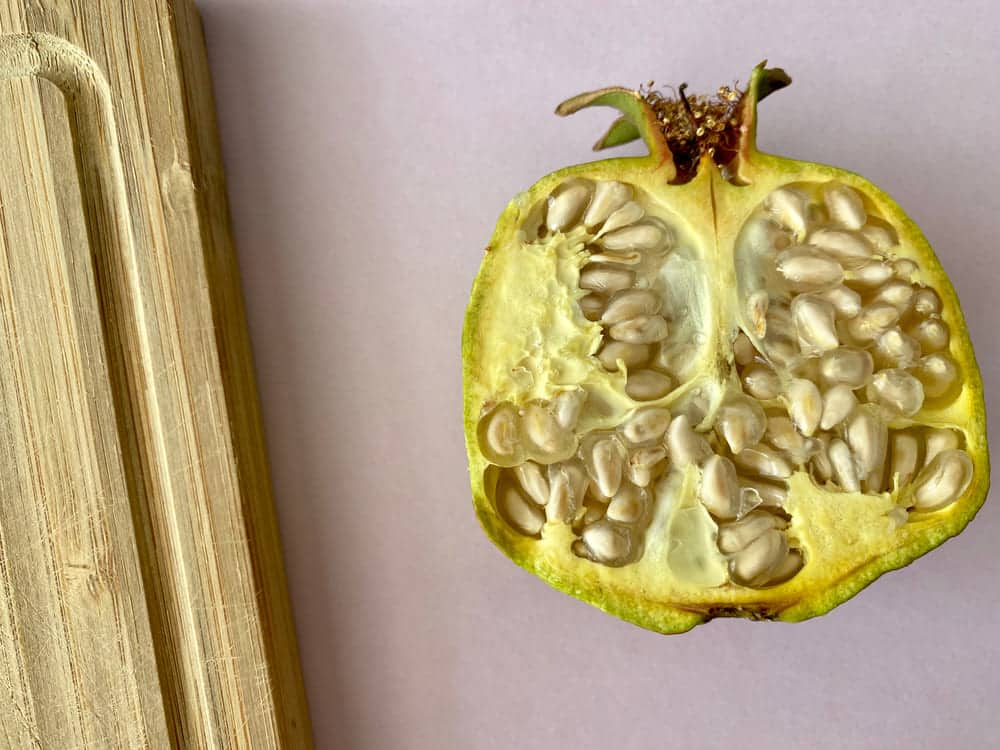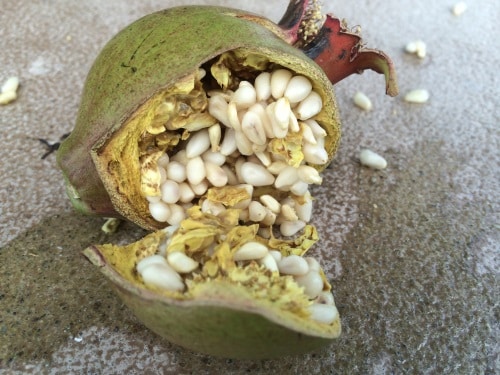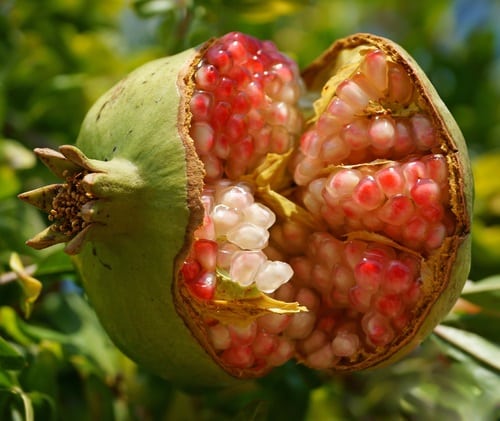
No one wants to miss out on their exquisitely sweet flavors when it comes to fresh juicy fruits. An especially delicious fruit, the pomegranate, is considered one of the most precious fruits available. The jewel-bright seeds are delicious sprinkled over creamy yogurt or salads.
However, sometimes, you can’t get what you want and realize after opening your pomegranate, it is underripe. Sometimes the skin is reddish, but the seeds inside are still green. You may be wondering if they are edible. We are here to help.
In this article, we will walk you through some interesting facts regarding pomegranate. Moreover, you will also get to know if consuming unripe pomegranate is safe, so stay with us!
Is Consuming Unripe Pomegranate Seeds Safe?

Like so many other fruits yet to ripen completely, unripe pomegranate tastes sour and even slightly bitter. A ripe pomegranate’s seeds are a ruby red color. When unripe, they’re a dull green to white.
While many fruits are not suitable for us to eat when green, pomegranates are a bit different. It is even said that there may be some health benefits to consuming them while green and no harmful effects. But, of course, they won’t have the same sweet flavor as ripe fruit.
Picking Pomegranates at the Store

Of course, while we can still use slightly underripe fruits, none of us wants to choose them deliberately. Pomegranates do not ripen further after picking. So, when buying them in the shop or at the market, bear these tips in mind:
- Northern hemisphere pomegranates are ripe between August through January. The southern hemisphere is the opposite.
- Pick fruits that have dark red skin.
- Choose a lumpy skinned fruit rather than a smooth one. That’s because the lumps show that the seeds inside are big and juicy.
- Pick a fruit that feels heavy for its size. Green fruit will feel light and a little hollow when knocked on with your knuckles.
8 Benefits of Pomegranate Seeds and Juice
1. Polyphenols

Pomegranates are red because of the polyphenols, powerful antioxidants, that they contain. They contain more antioxidants than many other fruits which help the body deal with free radicals and reduce inflammation.
2. Vitamin C

One pomegranate contains nearly half of the recommended daily allowance for vitamin C. It’s best to eat fresh fruit rather than buying the pasteurized juice, as processing destroys most of this vitamin.
3. May Help to Prevent Cancer

Recent research shows that pomegranate juice helps stop prostate cancer cells from growing. More studies are still being done.
4. Protection from Alzheimer’s

The high concentrations of antioxidants in this fruit are thought to slow the progress of Alzheimer’s and protect against memory loss. A recent study showed that drinking an eight-ounce glass of pomegranate juice daily improves memory.
5. Improves Digestion

Pomegranate seeds are high in fiber which aids digestion. Also, the fruit has been shown to reduce gut inflammation and is helpful for people suffering from ulcerative colitis, diverticulitis, and other bowel issues.
6. Anti-inflammatory Effects

All the above add up to pomegranates having powerful anti-inflammatory properties which protect from a host of chronic ailments such as arthritis. The flavanols in the fruit may stop the inflammatory process that leads to osteoarthritis and rheumatoid arthritis. It also seems to have beneficial and protective effects on the arteries, keeping them flexible and improving blood flow.
7. Antiviral and Antibacterial

Partly because of its vitamin C content and its other immune-boosting nutrients such as vitamin E, potassium and folate, pomegranate juice is useful in the fight against infection. In lab studies, it has shown an antibacterial and antiviral effect. Which of us doesn’t need that nowadays?
8. Improved Fertility and Sexual Performance

The ancient Greeks believed that Aphrodite, the goddess of love, planted the first pomegranate tree. Arabian brides used to smash the fruits to promote the conception of many children. They may have been onto something. Today we know that the fruit increases testosterone levels in both men and women. It is also said to increase blood flow to the uterus and aid sperm motility.
What to do with Green Pomegranate Seeds

If you were unlucky enough to get a green pomegranate in your batch, don’t worry, you can still use it. We’ll show you a few ways:
- Add the seeds to a smoothie. Use them with some sweeter fruit to balance the tartness, for example, banana. Try freezing the seeds first for a delicious iciness.
- Use them for pomegranate jam. This fruit makes one of the best jams/ jellies you’ve ever tasted. Mix the green seeds with ripe ones for the best color and flavor results.
- Juice them. You will probably need to add some sugar or stevia to counteract the sourness.
- Put them in a fruit salad with other, sweeter fruit pieces.
- Add them to the apples for apple pie. The sweetness of the other ingredients will balance the sourness, and the cinnamon will also work well with the green pomegranate taste.
We hope this has helped you to know what to do with your green pomegranates. Good luck, and let us know what you used yours for in the comment section below.